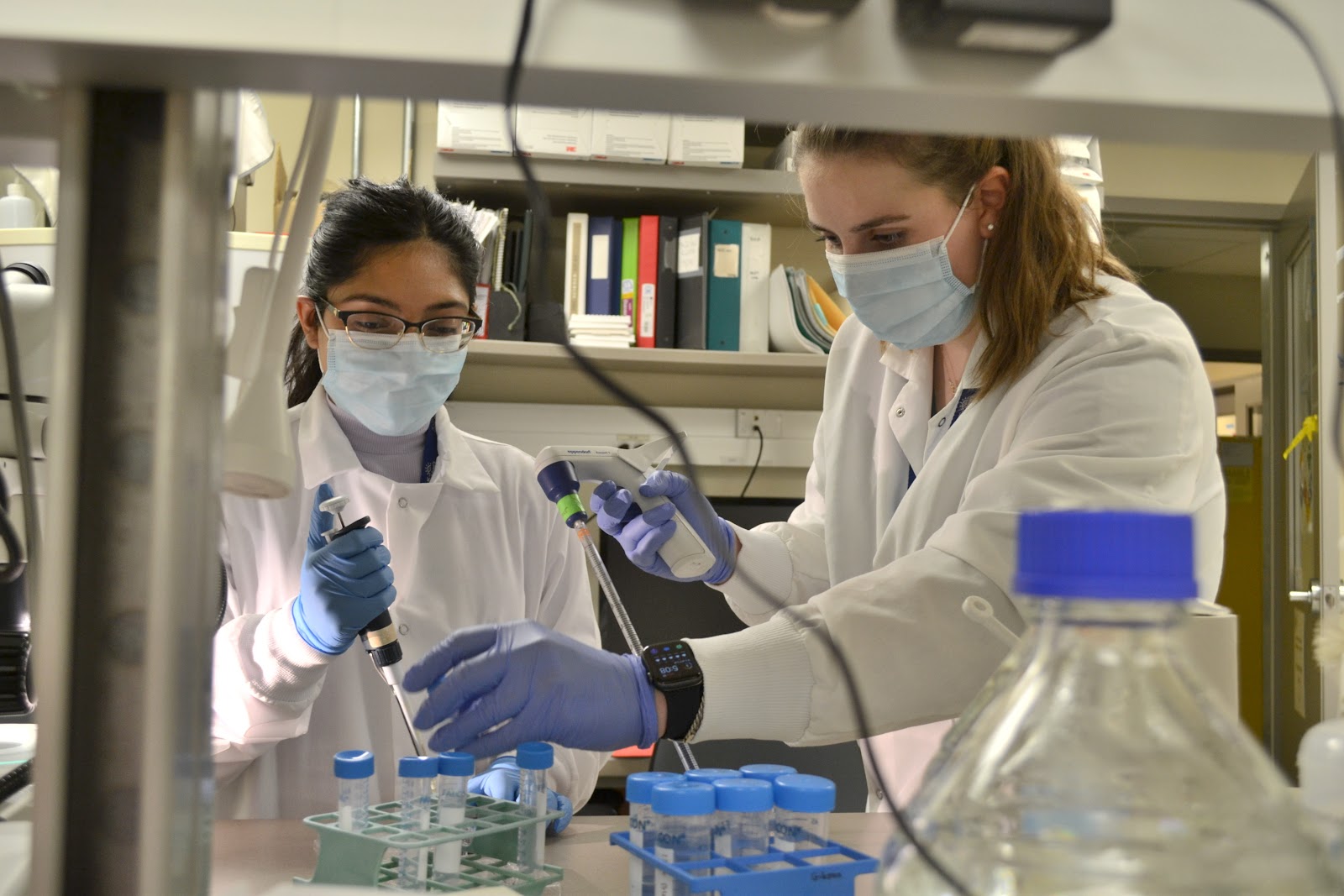
Vriti Bhagat is a graduate student pursuing a PhD in Pathology and Laboratory Medicine at the University of British Columbia (UBC). She works as a graduate research assistant in Dr. Bruce Verchere’s lab at BC Children’s Hospital with a focus on understanding diabetes in children. Vriti will be one of five panellists at the Women in Science event on Feb. 9, 2023.
Finding inspiration all around me
My current research interests stem from a passion to learn about the intricacies of diabetes, and develop therapies for those living with the disease. Growing up in a South Asian community, which is disproportionately impacted by type 2 diabetes, I knew many people who were living with the condition, including my own family members. I was inspired to pursue a career in science to help my community better understand and be equipped with the tools to manage their diabetes.
This budding interest was nurtured by my mom, who is my biggest role model. She completed two master's degrees while shouldering household duties at a time when women were discouraged from pursuing higher education in India.
My mom’s commendable work ethic and courage to challenge the status quo helped me build my confidence as a woman of colour to pursue higher education.

Education as a window of opportunity
Like many students entering university, I was unsure of what program I wanted to major in for my bachelor’s degree. Through my family doctor, who also completed their education at UBC, I discovered a unique program, in which I could create a degree tailored to my own interests. I worked with world-renowned genomics researcher Dr. Jennifer Gardy as my mentor. She helped me tailor my undergraduate degree to integrate my passions for genetics, immunology and physiology with a focus on diabetes. She also openly shared her personal experiences of being a woman in science. None of my family members or friends at the time were in research, so having her to inform my career path was invaluable.
By the time I reached graduate school, I knew I wanted to understand the molecular mechanisms that contribute to the pathogenesis of diabetes. I reached out to Dr. Verchere whose research I learned about through an upper-year physiology course. He had lectured on prohormone processing in the pancreas, which is an important step in regulating blood sugar levels.
Working under his supervision, I am studying how hormones involved in regulating blood sugar levels (e.g. insulin) are produced in healthy individuals, and how these processes become impaired in individuals living with diabetes. I hope to advance knowledge of potential new targets for the treatment of diabetes, and to identify new biomarkers to improve our ability to predict the likelihood of developing diabetes in children. About 30,000 children in Canada are living with type 1 diabetes, and 1.54 per 100,000 children under 18 are diagnosed with type 2 diabetes annually, with the prevalence of diabetes increasing each year.

Be brave and take that first leap of faith
I encourage young women and girls who are considering a science career to be brave and take that first leap of faith because the worst thing that can happen is things don't go your way and you move on. But the best thing that can happen is things work out! When I am afraid of trying something new, I maintain the mindset of, “What if things work out better than I imagined?”
I learned to create opportunities for myself while I was seeking my first research position as an undergraduate student. I reached out to many professors inquiring about opportunities to work in their lab but did not hear back. However, I remained persistent and after following up and emphasizing my interest in their research, I landed my first summer research position.
My career path would not have been possible if it were not for all the women who came before me who fought for these opportunities. Throughout my undergraduate and graduate studies, I have been fortunate to be surrounded by supportive peers and supervisors. I consider myself very privileged, and am thankful to be in this position.
More early exposure to science is needed
Women and other underrepresented groups still face systemic barriers today. Supporting more women to be in leadership positions, especially in traditionally male-dominated disciplines, would provide young women with more role models to look up to.
Growing up, I had limited knowledge about women in science. In elementary and high school, the contributions of women to scientific advancements were rarely mentioned, and I was unaware that a career in research was possible.
Outreach events like Women in Science encourage more girls and young women to recognize that a career in science is an option. I am hopeful that introducing them to career options in the sciences in high school or even earlier will empower them to pursue their dreams.
Join us as we celebrate International Day of Women and Girls in Science
Thursday, Feb. 9, 2023
Click here for event details
Registration is open to high school students, university students, the health science community and the general public. The curriculum and discussion will be targeted for a grade 10–12 education level. The event will be hybrid with the option of attending in-person or virtually.
To read more profiles and keep on top of the latest research in child health, be sure to follow us on social media:




